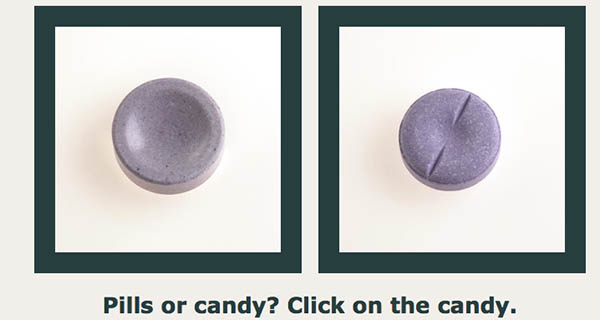Poison is Not Candy
By Practical Homeschooling Staff
Printed in Practical Homeschooling #94, 2010.
 How to reduce the risk of poisoning in our homes
How to reduce the risk of poisoning in our homes

|
by Practical Homeschooling Staff

Poisoning is the second leading cause of childhood injury in the U.S.—more than four million
poisonings each year. In hopes of reducing this figure, California Poison Control System (CPCS)
(www.calpoison.org) has published an innovative social media collection full of helpful information
about poison for both English and Spanish speaking families. The collection includes free text
messaging, Twitter updates, and Facebook quizzes. The tips, news, and information about poisoning
are designed to save lives and prevent injury.
Featured at CPCS’s
www.pillsvscandy.org site is a game that challenges moms and dads, as well as
grandparents, to choose what is candy and what are lookalike pills. It’s amazing how easy it is to
mistake one for the other. The game makes learning this lesson fun instead of preachy. CPCS invites
users to sign up as Facebook fans at California Poison Control System where they can challenge
themselves with quizzes about poison plants, batteries, chipped paint, and the dangers that lurk in
kitchen cabinets. Twitter users can find interesting tips @poisoninfo.
Here are some poison prevention tips from the CPCS:
- 1-800-222-1222 for poison help should be added on or near all phones.
- Medicines and cleaning products should be kept in locked cabinets.
- Never keep cleaning products, gasoline, antifreeze, paint and paint thinners, or lighter fluid in food or beverage containers.
- Do not store food and household cleaners in the same cabinet.
- Never call medicine candy.
- Keep products in the containers they came in.
- Do not take medicine in front of children; they love to do what adults do.
- If you are taking medicine or using a cleaning product and are called away, take it with you.
- Makeup, perfume, cigarettes, alcohol and vitamins should be kept out of children’s reach.
CPCS is available 24/7 to providing information and help in case of poisoning. Call them at
1-800-222-1222 for advice. Pharmacists, nurses, physician-toxicologists and poison information
providers are always there to help. In most cases you can manage a poison exposure emergency safely
from home without a call to 911 or a costly visit to the emergency room.
The poison control experts are available to answer questions any time, not just for emergencies.
Request brochures, magnets, telephone stickers and materials in 10 languages at www.calpoison.org.